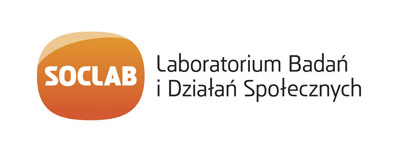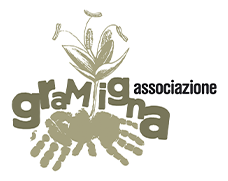EURECA
Good Practices
Camilla - food coop
Country:Main Subject:
Description:
Camilla originates from the design process of a "solidarity purchasing group" Alchemilla in Bologna, thanks to the collaboration with the Campi Aperti Association, which has been organizing markets in public squares for organic farmers for years. The experience of the open-air markets inspired the creation of Camilla, particularly for the opportunity to encourage the growth of conscious consumers, in direct contact with producers, and thus active participants in a system that brings fresh and quality products to the shelves.
To develop this idea of new consumption and participation methods, the concept of a "community store" was born, drawing inspiration from the experiences of Park Slope in New York and Bees Coop in Belgium, based on the idea of critical and conscious consumption. Operational since 2019, Camilla follows the example of Park Slope Food Coop, founded in New York in 1973 and now boasting over 16,000 members. In recent years, numerous similar experiences have emerged in Europe, such as La Louve in Paris and Bees Coop in Brussels. These examples have confirmed the sustainability of the model.
In practical terms, economic sustainability is ensured by the number of members and the purchasing volume of each member. Group purchasing reduces the selling price of products, benefiting all buyers without devaluing the necessary work for product realization. Camilla is the first Italian experiment of a Food Coop. In practice, it is a different, more participatory and conscious consumption experience, resulting in what can be defined as a self-managed supermarket by its attendees, emphasizing consumer accountability.
Camilla is based on self-management. How? By actively participating in the selection of products and then managing the sourcing, distribution, and shelf sales. To purchase from Camilla, it is required by regulation to be a cooperative member and thus support the entire activity. Members must join and contribute three hours of their time per month to manage the store. By relying on voluntary work and thus reducing personnel costs, Camilla manages to offer fair prices for producers without being high for its members.
The store primarily sells food products, sourced from organic and sustainable supply chains (packaged and bulk, with a progressive inclusion of fresh vegetables and fruits, cheeses, and meat). All products in the store come from organic, ethical, and sustainable supply chains. The reference document for food products is the "Guidelines for Choosing Producers," which defines specific requirements based on the type of product. The group constantly works on a broader evaluation system, verifying the quality of producers and adherence to Camilla's principles.
The product selection within Camilla is seen as a tool to protect territories and empower communities, entrusted to a dedicated working group composed of competent members. The fundamental criteria for product selection include: organic, bio dynamic, or equivalent agricultural production; environmental and social sustainability; transparency in relationships; reduction of packaging; support for producers in difficulty; new supply chains; and the spread of bulk products.
Camilla promotes short and local production chains and direct knowledge of producers, fostering a constructive and transparent relationship among the entities involved in the supply chain, from production to consumption. It embodies the concept of "mutualistic exchange" between members and the cooperative: excellent products at affordable prices in exchange for a voluntary work shift for the store's operation.
In addition to the opportunity for solidarity, ethical, and sustainable shopping, members are encouraged to actively participate in various aspects of cooperative life. They organize food literature meetings, focusing on ethical supply chains that combat exploitation and human trafficking, in-depth discussions on participatory guarantee systems for food producers, and meetings on producer supply chains.
Since 2019, 56 people have started as founding members, and there are currently 475 cooperative members. Camilla organizes meetings with producers, public events, and consistently expands its network of suppliers, demonstrating that the community store model can also work successfully in Italy.
Reference links:
https://www.gamberorosso.it/notizie/food-coop-in-italia-come-funziona-il-supermercato-autogestito/
https://www.gamberorosso.it/notizie/camilla-apre-a-bologna-tutto-pronto-per-il-debutto-della-prima-food-coop-ditalia/
www.camilla.coop
https://comune-info.net/nostri-non-sono-clienti/
https://www.campiaperti.org/
https://www.foodcoop.com/
https://bees-coop.be/
https://camilla.coop/wp-content/uploads/2021/05/EC-Linee-guida-scelta-produttori_2019.pdf
SDG direct/ indirect short justification:
Direct SDGs:
- SDG 11: Camilla's practices align with Sustainable Development Goal 11 (SDG 11) - "Sustainable cities and communities" in several ways: sustainable and community-based food consumption in the urban context. Community involvement and active participation, Local economic development with support for local producers and Resilience for the aspects of self-management and community involvement.
- SDG 2: Zero Hunger: Camilla promotes sustainable and ethical food consumption, supporting local and organic agricultural production. This aligns with the goal to eliminate hunger and ensure access to nutritious food.
- SDG 12: Responsible Consumption and Production: The cooperative's work on critical and conscious consumption, reduction of packaging, and support for sustainable supply chains directly aligns with SDG 12, which aims to ensure sustainable consumption and production patterns.
- SDG 15: Life on Land: Camilla's focus on supporting producers in difficulty and promoting sustainable agriculture contributes to the goal of protecting and restoring ecosystems on land.
- SDG 17: Partnerships for the Goals: The cooperative model fosters a collaborative and inclusive approach, involving community members in the decision-making process. This aligns with Goal 17, which emphasizes the importance of partnerships to achieve sustainable development.
Indirect SDGs:
- SDG 1: No Poverty: While not the primary focus, the cooperative indirectly contributes to poverty alleviation by supporting local producers and providing fair prices for their products.Goal 8: Decent Work and Economic Growth: Camilla's model, based on voluntary work shifts and support for local producers, indirectly contributes to creating decent work opportunities and supporting economic growth at the community level.
- SDG10: Reduced Inequalities: The cooperative's emphasis on fair prices, ethical sourcing, and community involvement indirectly contributes to reducing inequalities within the local food supply chain.
- SDG13: Climate Action: By promoting sustainable agricultural practices and reducing reliance on conventional supply chains, Camilla indirectly supports climate action and environmental sustainability.
Justification:
Camilla is the first Italian experiment of a Food Coop, a self-managed supermarket by its attendees. It is based on self-management and participation, aiming to foster a sense of community that can encourage the desire for "a different economy and a better world."
Keywords:
City:
Location:
Questions:
1 How does Camilla, as a "solidarity purchasing group" and a Food Coop, differ from traditional supermarkets in terms of its operational structure and the involvement of its members in the decision-making processes?
2. What specific criteria and guidelines does Camilla follow in selecting and sourcing products from organic and sustainable supply chains, and how does this contribute to the store's commitment to environmental and social sustainability?
3. In what ways does Camilla encourage its members to actively participate in the cooperative beyond shopping, and what types of events or activities are organized to foster a sense of community and shared values among the cooperative members?
Authors:
Agostino Cefalo, Gramigna ODV




